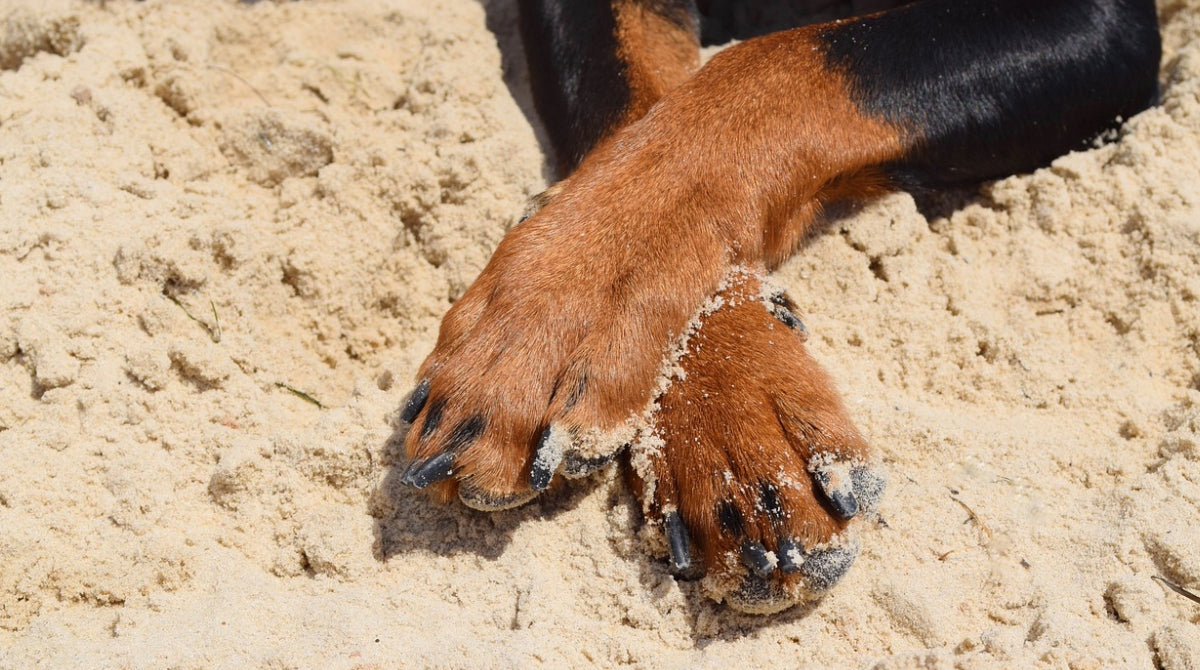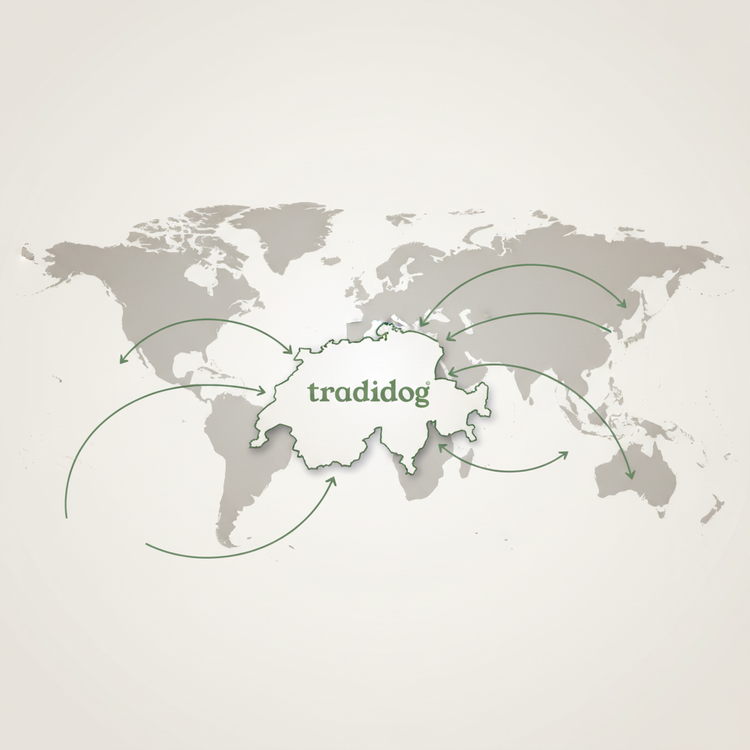
My dog constantly licks his paws
You've probably experienced this before: You're sitting comfortably on the couch, your dog is relaxing next to you, and suddenly you hear that unmistakable sound – lick, lick, lick . You look over, and there it is again, the sight of your dog devotedly licking its paws as if it were about to turn them into chocolate. (Wait, stop, is my dog even allowed to eat chocolate? You'll find out the answer in a separate blog post.) But let's get back to the topic at hand. Sometimes, licking like this is quite sweet, maybe even soothing. But if your dog is constantly doing it, it not only becomes annoying, but can also indicate a serious problem. Why do dogs do this, and what can you do about it? Let's take a closer look.
Why does your dog lick his paws?
Paw licking isn't unusual per se. Dogs use their tongues to clean themselves or treat minor injuries. It's a natural instinct and sometimes simply part of grooming. But when licking gets out of hand, there's often a reason you shouldn't ignore. It could be a physical problem, but it can also be caused by emotional factors like boredom or stress. So, it's important to pay close attention to understand what your dog is trying to tell you through their behavior.
Possible causes of constant licking
One of the most common causes of excessive paw licking is allergies . Dogs can be allergic to pollen, grass, dust mites, or certain ingredients in their food. These allergies often manifest as itching, especially on the paws. So, if your dog licks more intensively during pollen season or after eating a certain food, an allergy could be the trigger.
But skin problems are also common suspects. Chemicals like cleaning products or road salt in winter can irritate the sensitive skin on the paws. This leads your dog to try to relieve the irritation by licking.
Injuries or foreign bodies such as small splinters, thorns, or stones are another possible cause. Dogs instinctively try to remove these foreign bodies by licking. A close look at the paws can often provide clarity.
Not to be forgotten are parasites such as fleas and mites, which can lead to unbearable itching. Mites, in particular, like to settle in the spaces between the paws.
Finally, there are behavioral issues . Stress, anxiety, or simply boredom can cause your dog to constantly lick his paws. It's a form of self-soothing, similar to nail biting in humans.
Symptoms to look out for
Excessive paw licking is often just the tip of the iceberg. Pay attention to whether your dog's paws are red or swollen. Sometimes bald patches or discoloration in the fur also appear, especially between the toes. These are caused by constant licking and moisture, which further irritates the skin. Open wounds or scabs are a clear sign that licking has already led to serious skin irritation or infection.
What can you do if your dog constantly licks his paws?
The first step is to check the paws regularly. After every walk, check for foreign objects like small stones or thorns. Clean the paws with a mild, dog-friendly care product, especially if your dog has walked through mud or over road salt.
In winter, you can rub your dog's paws with a special paw balm or wax to protect them from cold and salt. This not only prevents licking but also keeps the skin supple and healthy.
When should you see a veterinarian?
If the licking doesn't stop and you can't find an obvious cause, a visit to the vet is recommended. Especially if the paws are inflamed, your dog is limping, or appears lethargic, you shouldn't wait any longer. The vet can determine the exact cause and provide targeted treatment through skin tests, blood tests, or allergy tests.
Possible treatments at the veterinarian
Treatment, of course, depends on the cause. If an allergy is present, the veterinarian may suggest special medications or even a hypoallergenic diet. Skin infections or injuries are treated with antibiotics or anti-inflammatory ointments. In more severe cases, such as mite infections, special anti-parasitic medications are necessary.
If the licking is caused by stress, your veterinarian may also recommend calming measures or consult an animal behaviorist.
How can you prevent licking?
Prevention is key. Regular paw care is key. Make sure to check your dog's paws after every walk and keep them clean. Provide your dog with plenty of exercise so they don't resort to licking out of boredom. Also, remember to avoid known allergens as much as possible.
Home remedies and their effectiveness
Sometimes simple home remedies can help. Chamomile tea is excellent for soothing irritated paws. Dip a clean cloth in the cooled tea and gently dab the paws. Coconut oil has anti-inflammatory and soothing properties and can be applied to the paws in small amounts. However, these remedies should only be used as a supportive measure. If symptoms persist, a visit to the veterinarian is essential.
Conclusion
If your dog is constantly licking their paws, it could be a sign of a variety of problems—from allergies to injuries to stress. It's important to identify the cause and act accordingly. With regular grooming, a watchful eye, and veterinary assistance if needed, you can help your dog feel better again. Paw licking is not only annoying, but can have serious health consequences if ignored. So, it's better to take a closer look and act early to keep your four-legged friend happy and healthy.
Tradidog motto: Be attentive and give your all so that your dog continues to respond to "Give paw"!
Share

